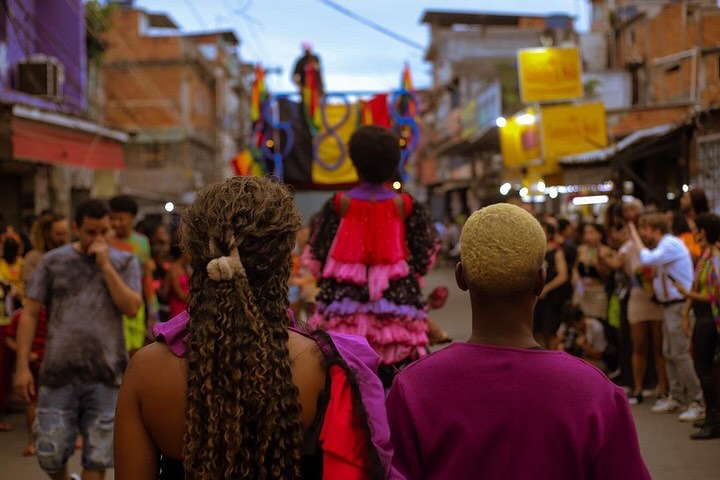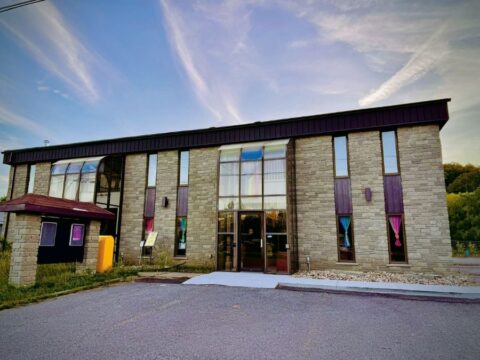In August 2020, Alice Felis — a sex worker from Brazil — was brutally attacked by an alleged client who disfigured her face and destroyed her rented apartment in Copacabana, a tourist zone in Rio de Janeiro. The 29-year-old trans woman had to undergo several facial reconstruction surgeries after having her nose and jaw fractured, losing 14 teeth and sustaining several cuts to her legs, face and fingers.
While she was able to make a full recovery and her attacker was eventually arrested, the fear never subsided. Brazil is one of the most dangerous countries in the world for trans people. For the past 15 years, it has held the highest rate of trans deaths globally. In 2023 alone, 145 people were murdered — most of them sex workers, Black, and from poor communities, according to Brazil’s National Association of Transvestites and Transsexuals (ANTRA). Their killers often claim self-defense, citing alleged attempted robbery or extortion. These figures have reduced the average life expectancy for trans people in Brazil to just 35 years.
You may unsubscribe from any of our newsletters at any time.
The situation is exacerbated by the job market, which is almost non-existent for trans women. According to ANTRA, only four percent of trans people are employed in Brazil’s formal labour market. For many, sex work becomes their only viable option.
Faced with limited job prospects and the constant fear of another attack, Felis saw no other choice but to move permanently to a country that’s safer for 2SLGBTQ+ people.
Although Brazil has made some progress in recent years with its 2020 Gender Identity Law, which allowed trans people to change their gender and name on official documents, and the criminalization of transphobia in 2019, there are still limitations. Victims of transphobia have to go to a police station to file a complaint, but most of them don’t feel comfortable doing so due to fear of how they will be treated. As a result, few choose to report these types of crimes.
More on Broadview:
- This transgender priest says Anglican church’s affirmation of new worship resources could save lives
Lorena Magalhães, the executive advisor at Conexão G (Connection G), an NGO located in the low-income neighbourhood of Maré in Rio de Janeiro, says it’s hard to know the full scope of the problem, since Brazil does not keep official data on violence against trans people and also hides the identities of aggressors. Her NGO’s mission is to expand public policies, access to healthcare, education about the 2SLGBTQ+ population, and security for queer people living in favelas — informal, often impoverished settlements in Brazil.
According to Guilherme Nascimento, an activist at the NGO Grupo Sete Cores (Seven Colors Group), intolerance is also linked to the conservatism propagated by some Brazilian politicians — most notably, by former president Jair Bolsonaro, who was in power between 2019 and 2022. “I have five children. Four were men. The fifth one I faltered, and then a woman was born,” he said during a speech in July 2022. “What we want is for John to be John all his life. Maria to be Maria all her life, that they start a family, that their character isn’t distorted in the classroom.”
Felis adds that the problem is made worse by the current lack of education around trans people in Brazil. “It’s not about accepting, but respecting. What has to change is people’s mentality, and that starts at home and in schools,” she says.
Douglas de Lacerda, president of Casinha NGO (Little House) — an organization that supports 2SLGBTQ+ people in Brazil by distributing food parcels to families, providing legal support and mental health care — adds that education should extended to other fields, too, including schools, companies and universities. De Lacerda also wants to see legislation aimed at improving access to housing, food and professional training
Nascimento also identified a lack of government policies supporting trans people as being part of the problem. It is essential to implement more inclusion laws so that trans people have the same rights and opportunities as cisgender people, particularly in the job market, says Nascimento.
Some non-profits have started to shift the conversation. With the motto “resist in order to exist,” ANTRA works with 127 institutions throughout the country on information campaigns and denounces discrimination through health, education, security and human rights initiatives. Meanwhile, the organization TransEmprego (TransJob in English) is working to help trans people find work in Brazil. Their platform acts as a link between companies and trans job seekers, who can register their resumes and access opportunities. Companies linked to the project undergo training to provide a welcoming workplace for trans employees.
In 2009, Brazil also saw the creation of public outpatient clinics for trans people, where a multidisciplinary team of social workers, psychologists, endocrinologists and nurses help users access hormone therapy, as well as support them through the process.
Ten months ago, Felis moved to London in search of a safer life.
“In London, anyone is free to be whatever they want,” she says. “Here, I don’t live in fear of going out on the street or suffering some hostile situation.”
When asked about what she hopes for the future of trans people in Brazil, she says, “Doors need to be opened for us trans women and men … so that people can look at us differently. I hope that this current reality will change and that we will no longer be just a number in the statistics.”
Editor’s note: The quotes in this piece have been translated from Portuguese to English.
***
André Aram is a Brazilian freelance journalist who has worked for major news outlets in Brazil, as well as other international media, such as Vice. He currently lives in Rio de Janeiro.














